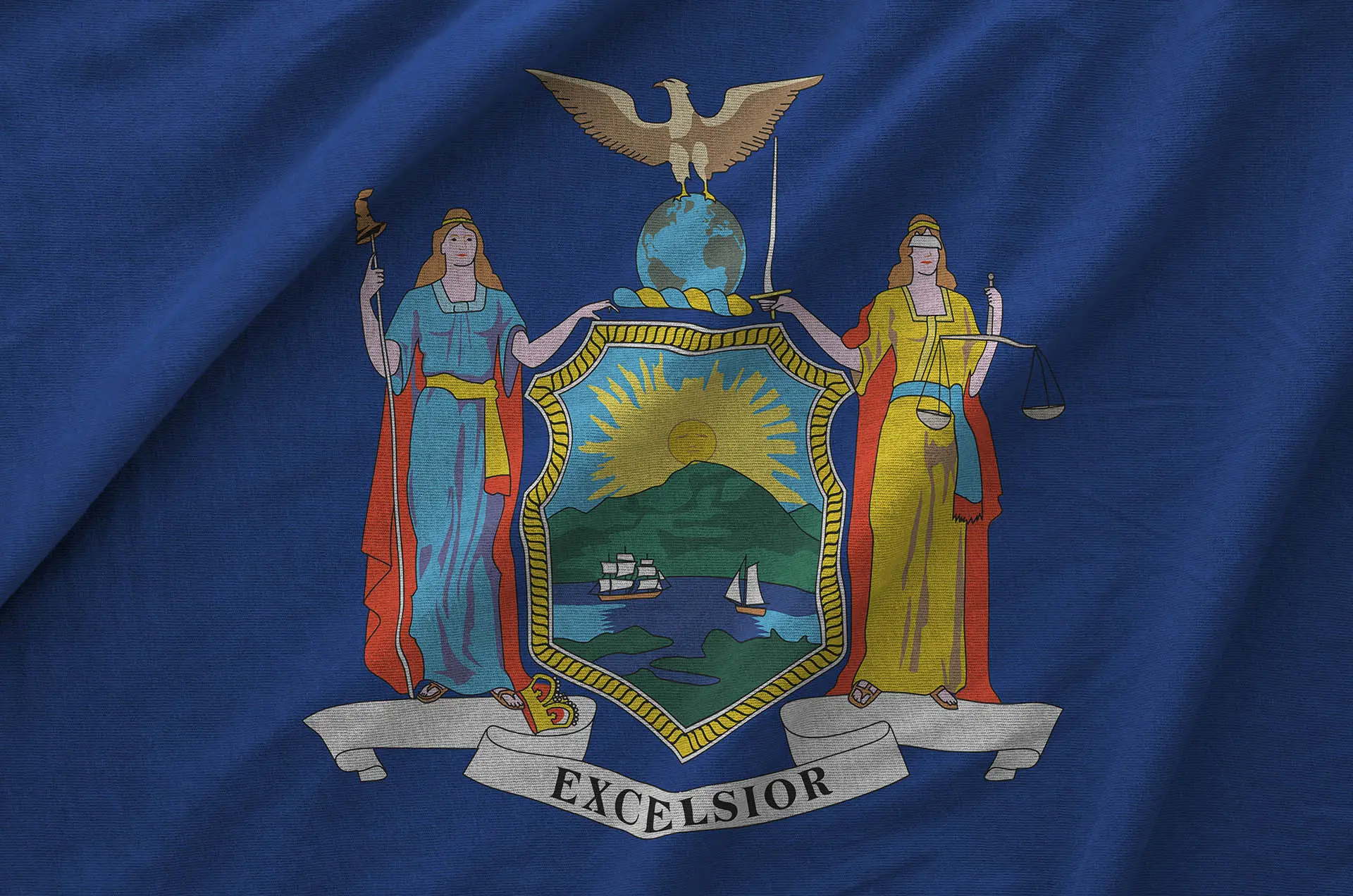New York state lawmakers are considering legislation that would require adult content websites to verify the age of users before granting access, joining a growing list of states pursuing similar measures.
The bill, introduced in January by Sen. Jacob Ashby (R-43rd District), would compel operators of pornography websites to ensure users are at least 18 years old. Businesses that fail to comply could face penalties of up to $50,000 per day.

Ashby said the proposal is part of a bipartisan push to address children’s exposure to explicit content online.
“I think that this bill is part of an ongoing bipartisan effort to have a better and healthier relationship online,” Ashby said. Thirty state legislators have signed on as cosponsors.
Yet what Asbhy doesn’t mention is the parents’ responsibility to monitor what their children are doing online, and how easy it is to install filters that come preinstalled on all mobile devices.
The legislation gives companies the option to either outsource age verification to third-party providers or develop their own systems. Services such as ID.me, already used for identity verification in other contexts, were cited as possible solutions.
Supporters argue the measure is necessary to shield minors from online pornography. Dr. Sarah Domoff, an assistant professor of psychology at the University at Albany and an expert on children’s media use, said research indicates that as many as half of teens view pornography by age 13.
Yet again, it doesn’t mention how the parents are allowing this to happen by not putting in the smallest effort to activate filters on their mobile devices.
“For many youths, online pornography is where they learn about sexual behaviors,” Domoff said. “This is really concerning because the content can be extreme and violent, so whether intentional or not, youth are coming into contact with this content that can have an impact on their beliefs or attitudes.”
Parents interviewed in her research, she added, often express worry over what their children are consuming online.
Ashby’s bill comes in the wake of a June U.S. Supreme Court decision in Free Speech Coalition v. Paxton, which upheld the authority of Texas and, by extension, other states to require age verification for access to online pornography.
According to the Free Speech Coalition, a trade group representing the adult industry, 25 states have now passed laws requiring age checks. While the group says it supports protecting minors from harmful content, it argues the laws could backfire by driving adults toward unregulated websites that do not enforce safeguards, some of which may host illegal material.
New York’s proposal mirrors legislation now in force in the United Kingdom, where the Online Safety Act began requiring adult sites to implement robust age verification systems in July.
Early data from analytics firms show that compliant websites like Pornhub lost more than a million daily visitors in the U.K. once the law came into effect. At the same time, traffic to unregulated sites, many of which are based abroad, increased. Critics argue this demonstrates the unintended consequence of pushing users toward riskier platforms.
Like New York’s proposed law, the U.K. measure empowers regulators to fine companies that fail to comply or even block access to their sites. Both systems have raised concerns about data privacy, since verification often requires users to upload sensitive personal information or government-issued identification.
Ashby said implementation of any New York law would ultimately be up to the platforms themselves.
“They could utilize a different vendor to do that, or they could develop their own process for verifying that,” he said.
Ashby acknowledged that his version of the bill may not advance in its current form because it is a Republican-sponsored bill. Still, he expects some version of the measure to be enacted.
“Typically, the majority doesn’t allow Republican-sponsored bills to go through,” he said. “But if it’s a good idea, they will take it and they will pass it. I am very confident you will see this move forward.”
If a parent allows a child to go to the park alone and that child gets attacked, people immediately ask where the parents were. They don’t blame the park. They want to know why the parent was allowing a child to wander alone in an unsafe environment.
The same concept applies to adult content. Why are parents not putting forth the smallest amount of effort to protect their children?
A parent should be responsible for the safety and well-being of their child.
Why should the burden of protecting that child fall on a 3rd party? Isn’t it the very job of a parent to protect their own child?
While I agree that porn sites should keep children off of their websites, and the way to ensure that happens is if a parent steps up and does something to protect their children from seeing material their little brains aren’t yet ready for.
Just like you wouldn’t let your child wander off unsupervised in real life, you can’t allow it online either. Parents need to step up and do even the smallest thing to protect their child; instead of blaming others, they need to examine their own parental shortcomings.